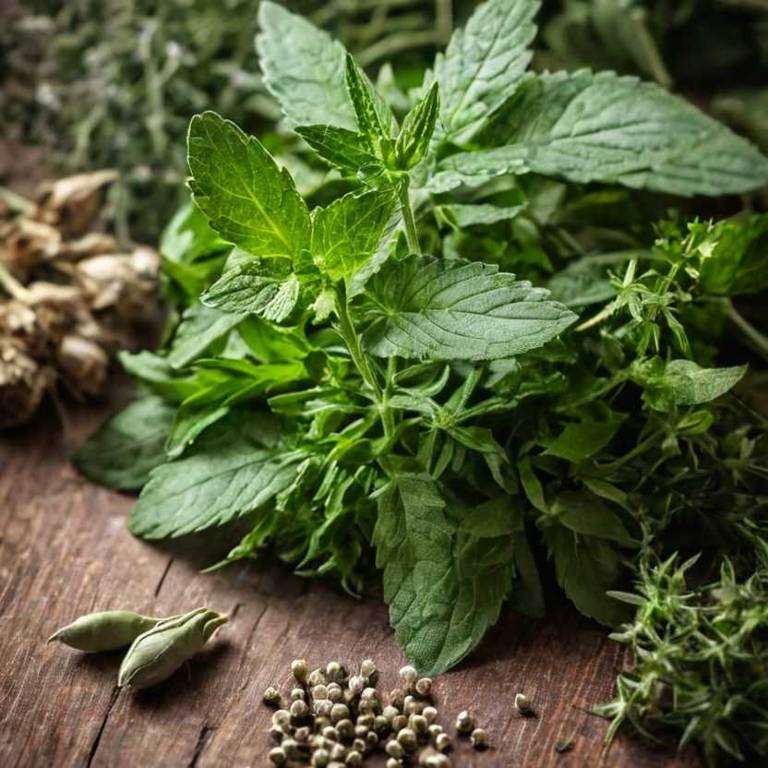Betel Leaf (Piper betle)
Betel Leaf (Piper betle) is a member of the Piperaceae family, native to Southeast Asia, South Asia, and Indo-Malaya. Traditionally, its leaves, stems, and roots have been used for infusions, powders, and decoctions.
This herb is particularly valued for its antispasmodic, tonic, and anti-inflammatory actions, and has a long history of use in ayurvedic medicine, traditional chinese medicine, and japanese kampo medicine.

Quick Facts / Key Information
| Common Name | Betel Leaf |
|---|---|
| Scientific Name | Piper betle |
| Plant Family | Piperaceae |
| Genus | Piper |
| Species | betle |
| Native Range | Southeast Asia, South Asia, Indo-Malaya |
| Plant Parts Used | Leaves, Stems, Roots |
| Primary Medicinal Actions | Antispasmodic, Tonic, Anti-Inflammatory |
| Primary Traditional Systems | Ayurvedic Medicine, Traditional Chinese Medicine, Japanese Kampo Medicine |
| Historical Preparation Methods | Infusion, Powder, Decoction |
Botanical Identity
- Scientific Name
- Piper betle
- Common Name
- Betel Leaf
- Synonyms / Alternative Names
- Piper Betle Leaf, Areca Leaf, Java Betel
- Plant Family
- Piperaceae
- Genus
- Piper
Botanical Description
- Growth Habit
- Perennial herbaceous plant.
- Height
- It typically grows to a height of 30 to 100 centimeters.
- Leaves
- Broad leaves with upper surface dark green and lower surface lighter green, featuring prominent stomatal bands.
- Flowers
- Bilaterally symmetric flowers with five petals, two of which are enlarged and fused, yellowish-white to pale green in color, arranged in clusters along the inflorescence axis.
- Stems
- Cylindrical, erect, herbaceous stems with opposite branching, smooth surface, and presence of longitudinal ridges.
Traditional Uses / Historical Use
Traditional Systems
- Ayurvedic Medicine
- Traditional Chinese Medicine
- Japanese Kampo Medicine
Historical Preparation Methods
- Infusion
- Powder
- Decoction
- Culinary Use
Medicinal Actions
- Antispasmodic
- As described in traditional systems, a mild antispasmodic, for cramp-focused discussions.
- Tonic
- In herbal literature, noted as a cooling tonic, for foundational support.
- Anti-inflammatory
- Traditionally described as a calming anti-inflammatory, for irritation-related applications.
- Carminative
- Commonly referenced as a gentle carminative, in stomach-related herbal uses.
Active Compounds
- Flavonoid
- A chemical class commonly identified in plant tissues, especially flowers and leaves.
- Alkaloid
- A class of nitrogen-containing compounds produced by many plant species.
- Phenolic Acid
- A class of aromatic plant compounds commonly found in leaves, seeds, and stems.
- Tannin
- High-molecular-weight phenolic compounds found in many plant species.
Modern Research Overview
Scientific literature concerning this plant spans multiple areas, including phytochemistry and laboratory research. Detailed analysis of published studies is not included at this time and will be added as part of future editorial expansion.
Safety & Contraindications
- General Precautions
- Caution is advised in certain contexts based on traditional use and available information.
- Contraindications
- Certain contraindications have been reported in relation to the use of this herb.
- Allergies
- There is insufficient evidence to determine whether this herb commonly causes allergic reactions.
- Drug Interactions
- There is insufficient evidence to determine whether this herb interacts with pharmaceutical drugs.
- Toxicity
- Available information regarding the toxicity of this herb is limited.
- Pregnancy & Breastfeeding
- Information addressing pregnancy and breastfeeding-related safety for this herb is limited.
Preparation & Usage Methods
- Infusion
- Water is poured over plant material and allowed to steep before straining.
- Decoction
- Plant parts are gently boiled in water to release soluble constituents.
- Poultice
- This method uses direct contact between plant material and the skin.
- Culinary Use
- This method integrates plant material into edible preparations.
- Powder
- Plant parts are dried and mechanically reduced to a powdered form.
Growing, Harvesting & Storage
Growing / Cultivation
- Soil
- Prefers loamy soil with moderately well-drained conditions. Typically grows best in organically rich soils.
- Sunlight
- Thrives in partial shade. Tolerates full sun to partial shade.
- Watering
- Prefers consistently moist soils. Tolerates periodic dry conditions.
Medical Disclaimer
The information provided on this page is for educational and informational purposes only. It is not intended to diagnose, treat, cure, or prevent any medical condition. Always consult a qualified healthcare professional before using any herb for medicinal purposes.